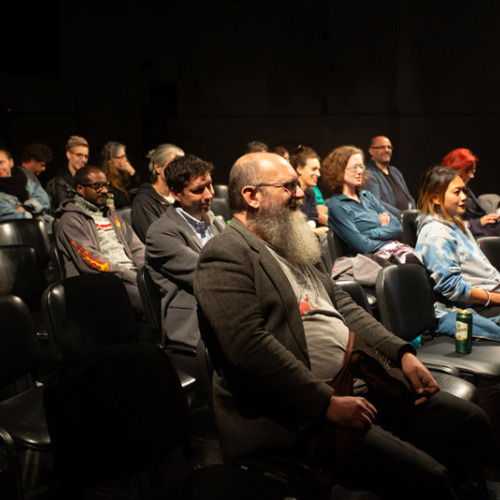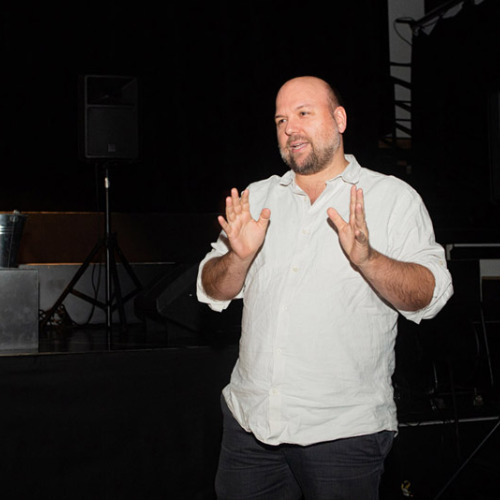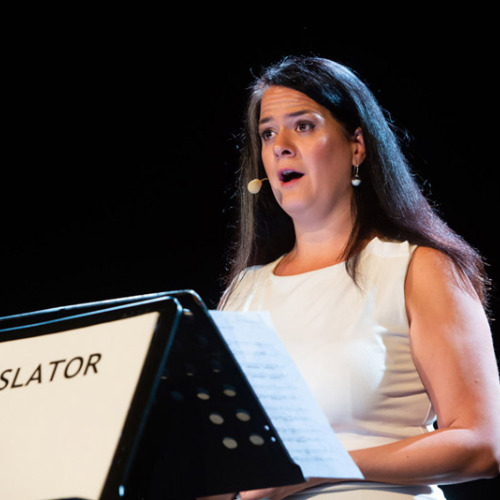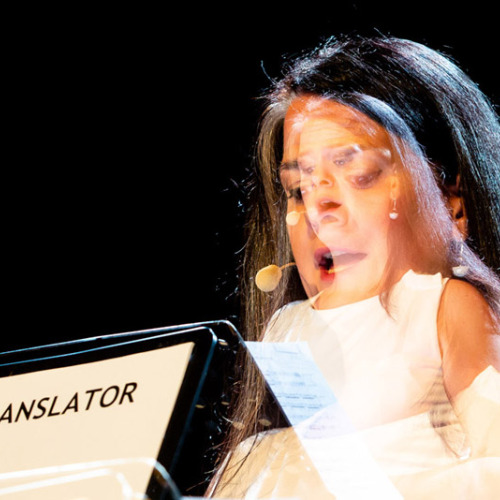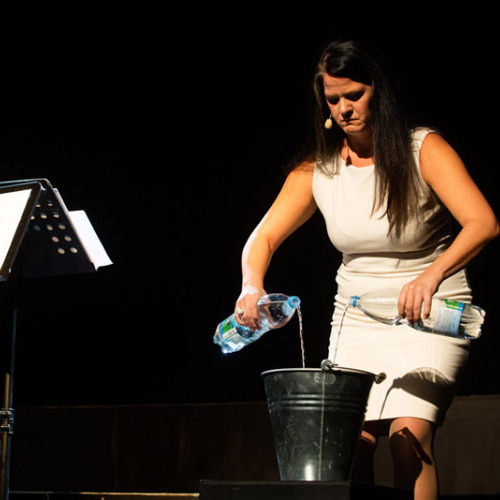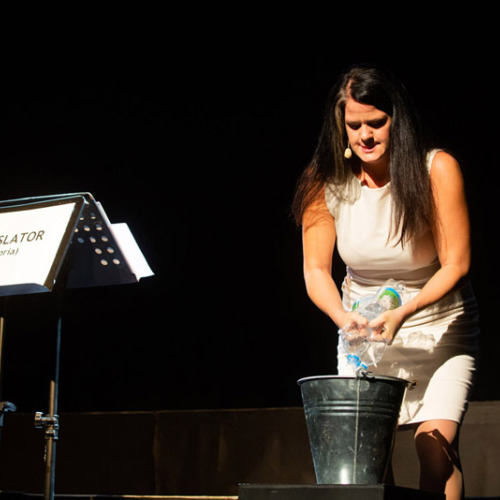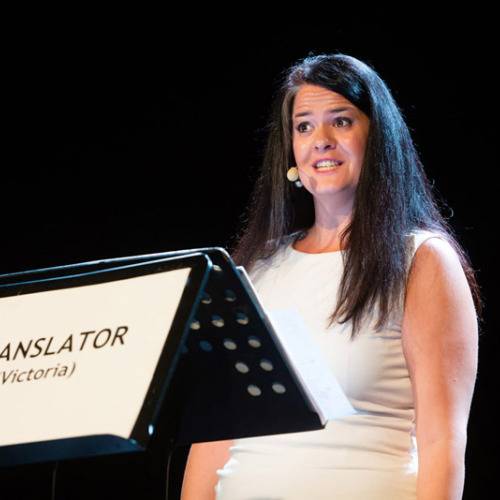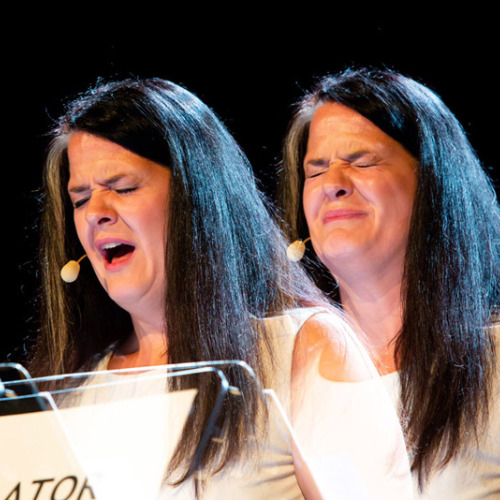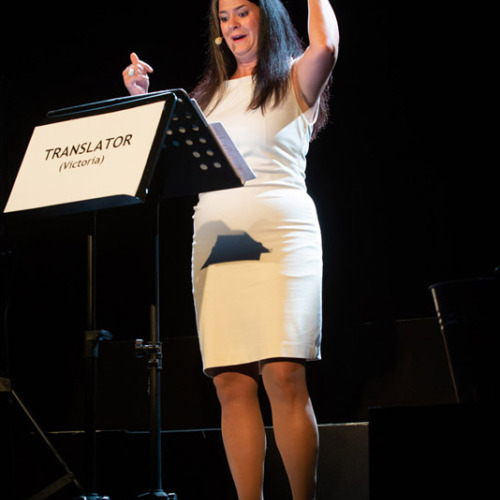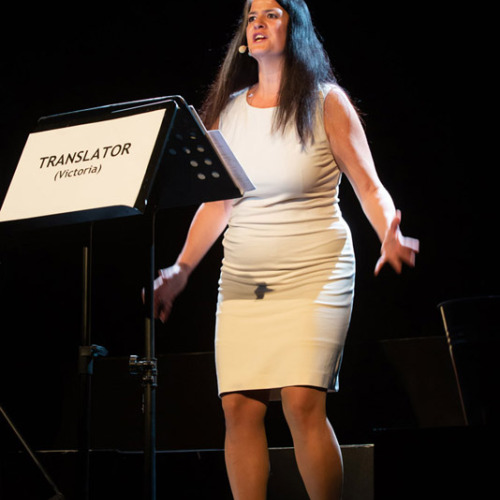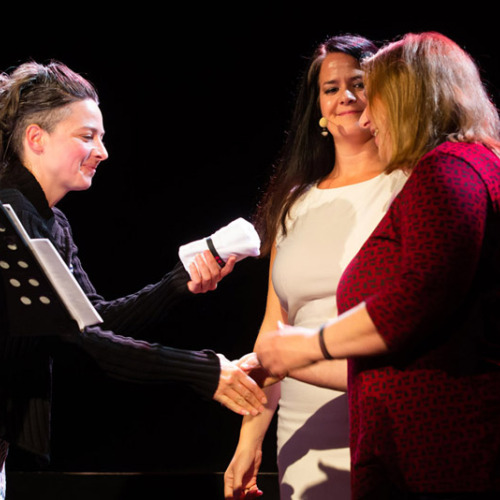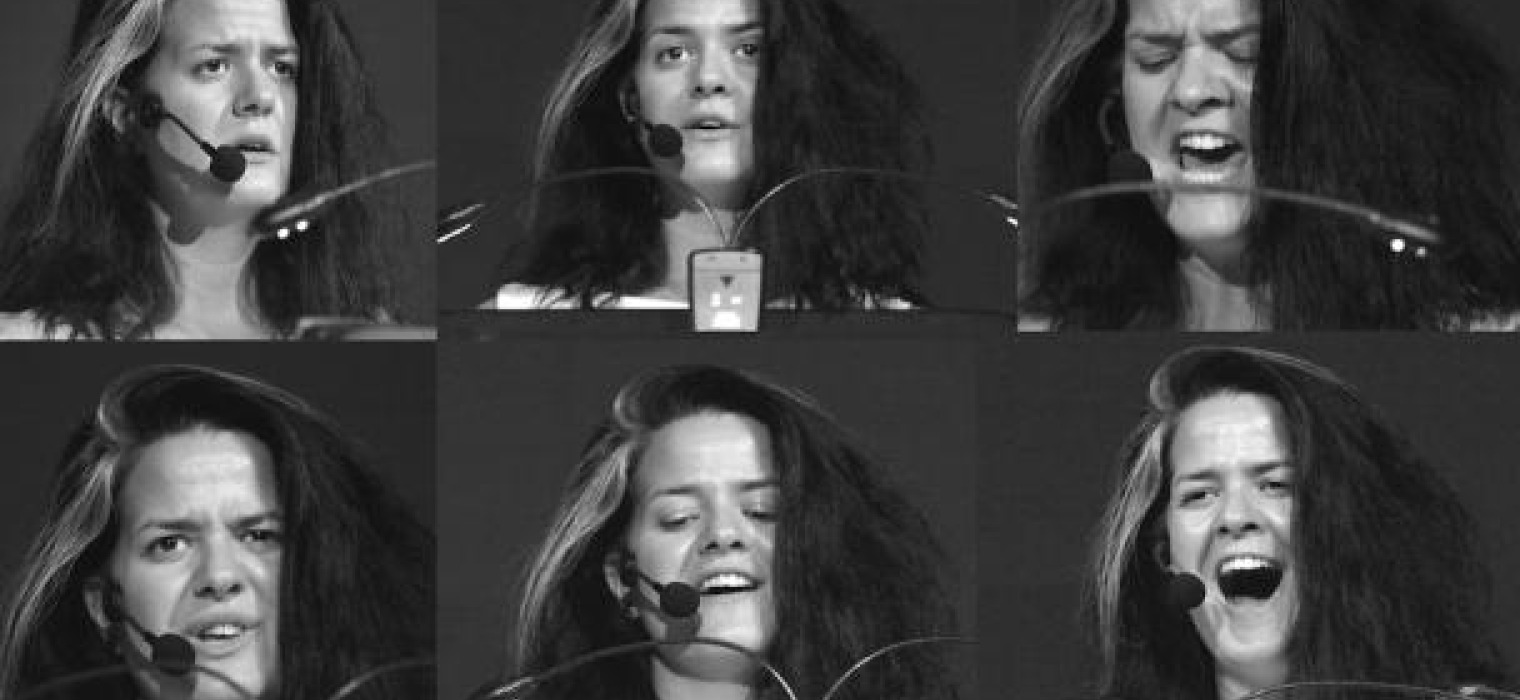
Beef Kohlrabi Cantata
Concert, 35'
// Musica Femina //
The Beef Kohlrabi Cantata (2017) fuses electroacoustic music with theatre, soundscape, fractal music and political manifesto. The composition is based on a field recording from the Keleti Railway Station in Budapest where hundreds of refugees were camping in 2015. The recording captures a conversation between three Hungarian men who loudly expressed their dissatisfaction with the fact that some volunteers were helping the refugees. At the most dramatic part of their conversation, one of the men said he would – if he had the power – shot the refugees, throw them on a truck and burn them. He continuously called them “marhakaralábé” (Hungarian for “beef kohlrabi”), a pejorative name for a fool he considered “funny”.
To develop the recording and place it in a wider context, Andrea Szigetvári collected additional recordings: interviews with refugees talking about their pitiful experiences and speeches by various contemporary political leaders expressing their ideas about finding solutions for the “migration crisis”.
It is the suprasegmental parameters or prosody of the vocal communication, the emotional and musical aspects of the speeches, that serve as source material for the composition of both the acoustic and the electroacoustic parts. The melodies, glissandi, rhythms, tempi, structures of silences, accents, volumes and timbral characteristics resulting from the vocal material are embedded in soundscapes reflecting on the location of the recording (the Keleti Train Station) and on the meanings emerging from the spoken texts.
Tickets: €10 / 7
In frame of Musica Femina programme
#HerSound // four sound events: €15
The piece was commissioned by University of Victoria, Canada as part of an EU-Canada project “Narratives of Memory, Migration, Xenophobia and European Identity: Intercultural Dialogues”.
Composer: Andrea Szigetvári; soprano: Márta Murányi; organised by City of Women v sodelovanju z Bunker – Old Power Station. In the framework of European cooperation project Musica Femina International. Supported by: Creative Europe Program, Ministry of Culture, City of Ljubljana, Balassi Institute Ljubljana.


